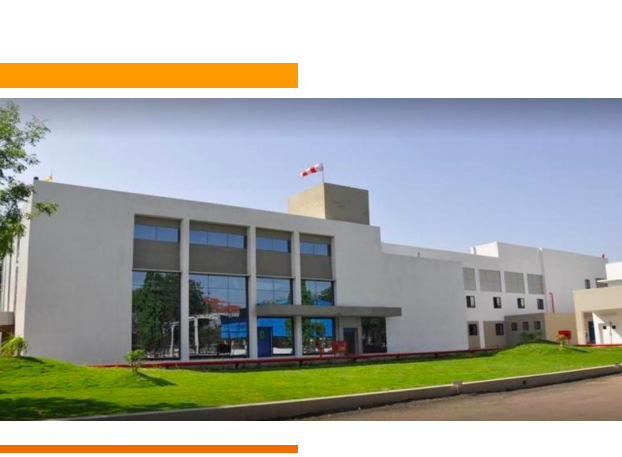Section 80D of the Income Tax Act in India provides tax benefits to individuals and Hindu Undivided Families (HUFs) for premiums paid towards health insurance policies. The primary objective of this section is to encourage individuals to invest in health insurance and ensure financial protection against medical expenses. By offering tax deductions, the government aims to promote a culture of proactive healthcare planning, thereby reducing the burden on the public healthcare system.
Under Section 80D, taxpayers can claim deductions for premiums paid towards health insurance policies for themselves, their families, and dependent parents. This financial incentive not only serves as a means to safeguard individuals and their families but also contributes to the overall well-being of society by fostering a sense of financial responsibility for healthcare. As healthcare costs continue to rise, the tax benefits under Section 80D play a crucial role in easing the financial burden on individuals and promoting a comprehensive approach to healthcare planning. In this context, understanding the provisions of Section 80D becomes essential for taxpayers to optimize their tax liabilities while prioritizing their health and well-being.
Eligibility Criteria for Tax Benefits
Eligibility Criteria for Tax Benefits under Section 80D of the Income Tax Act play a crucial role in determining who can avail themselves of deductions related to health insurance premiums. This section primarily covers individuals and Hindu Undivided Families (HUFs) who have invested in health insurance policies for themselves, their families, and dependent parents. The eligibility extends to both salaried individuals and those who are self-employed.
To claim tax benefits, the taxpayer must ensure that the health insurance policy is issued by an insurer registered with the Insurance Regulatory and Development Authority of India (IRDAI). Furthermore, the premiums must be paid through banking channels, such as cheque, credit card, or online transactions, to qualify for deductions. The eligibility criteria also emphasize the importance of the relationship between the taxpayer and the insured individuals. Taxpayers can claim deductions for premiums paid for their spouses, children, and dependent parents. This inclusive approach ensures that families can benefit collectively from health insurance coverage.
Deductions for Premiums Paid on Health Insurance Policies
Deductions for premiums paid on health insurance policies form a significant component of the tax benefits offered under Section 80D of the Income Tax Act in India. This provision allows taxpayers to claim deductions for the premiums paid towards health insurance plans, contributing to their financial well-being while ensuring access to essential healthcare.
Taxpayers can avail of deductions for health insurance premiums paid for themselves, their families, and dependent parents. The scope of coverage includes a wide range of medical expenses, such as hospitalization, surgical procedures, and critical illness treatments. Additionally, preventive healthcare expenses, including health check-ups, are also eligible for deductions, promoting a proactive approach to wellness.
Deductions for premiums paid on health insurance policies form a significant component of the tax benefits offered under Section 80D of the Income Tax Act in India. This provision allows taxpayers to claim deductions for the premiums paid towards health insurance plans, contributing to their financial well-being while ensuring access to essential healthcare.
Taxpayers can avail of deductions for health insurance premiums paid for themselves, their families, and dependent parents. The scope of coverage includes a wide range of medical expenses, such as hospitalization, surgical procedures, and critical illness treatments. Additionally, preventive healthcare expenses, including health check-ups, are also eligible for deductions, promoting a proactive approach to wellness. The deductions are applicable whether the policyholder is a salaried individual or self-employed, reinforcing the inclusivity of this tax benefit. The quantum of deductions varies based on the age of the insured individuals, with higher limits for senior citizens.
Limits and Categories for Deductions
Limits and categories for deductions under Section 80D establish the parameters within which taxpayers can claim benefits for health insurance premiums. The limits are structured based on the insured individuals’ age and the type of coverage, ensuring a fair and tailored approach to tax benefits.
For individuals below the age of 60, taxpayers can claim a deduction of up to ₹25,000 for health insurance premiums paid for themselves, their families, and dependent parents. If the taxpayer or their spouse is a senior citizen (aged 60 or above), the limit increases to ₹50,000. Additionally, a further deduction of up to ₹25,000 is available for premiums paid for parents, providing an opportunity for enhanced coverage. In the case of a taxpayer and their parents being senior citizens, the total deduction limit increases to ₹1,00,000. This dynamic structure accommodates varying family compositions and ensures that senior citizens, who often incur higher healthcare costs, receive adequate financial relief.
Key Documentation and Compliance
Key documentation and compliance are essential aspects for taxpayers looking to claim deductions under Section 80D for health insurance premiums. Proper record-keeping and adherence to compliance requirements ensure a smooth and successful tax filing process.
- Premium Payment Receipts: Taxpayers must maintain proof of premium payments made towards health insurance policies. Premium receipts issued by the insurance provider serve as crucial documents during the tax filing process.
- Policy Documents: Keeping a copy of the health insurance policy is vital. It outlines the coverage details, including the insured individuals, sum insured, and policy terms. This document helps substantiate claims for deductions.
- Bank Statements: Ensure that premium payments are made through verifiable banking channels such as cheques, credit cards, or online transactions. Bank statements reflecting these transactions add credibility to the deduction claims.
- Details of Insured Individuals: Maintain documentation establishing the relationship between the taxpayer and the insured individuals. Such as spouse, children, and dependent parents. This is essential for claiming deductions based on the family structure.
- Compliance with IRDAI: Confirm that the health insurance policy is issued by an insurer. It registered with the Insurance Regulatory and Development Authority of India (IRDAI). Non-compliance may render the taxpayer ineligible for deductions.
Maximizing Tax Benefits under Section 80D
Maximizing tax benefits under Section 80D involves strategic planning and leveraging the available provisions to optimize deductions for health insurance premiums. Here are key strategies to enhance tax benefits:
- Choose Comprehensive Coverage: Select health insurance plans that offer extensive coverage for medical expenses, including hospitalization, surgeries, and critical illnesses. Opting for policies with a higher sum insured ensures comprehensive protection and allows for greater deduction limits.
- Include Dependent Parents: To maximize deductions, include premiums paid for health insurance coverage for dependent parents. This extends the tax benefits available, especially if the parents are senior citizens, as higher deduction limits apply in such cases.
- Utilize Preventive Healthcare Benefits: Many health insurance plans provide coverage for preventive health check-ups. By availing these benefits, taxpayers not only prioritize their well-being. But also enhance their deductions under Section 80D.
Conclusion: Balancing Financial Wellness with Health Security
In conclusion, Section 80D serves as a valuable tool for individuals seeking. To strike a balance between financial wellness and health security. By incentivizing the investment in health insurance, the government encourages proactive healthcare planning. Taxpayers can safeguard themselves and their families from the financial strain of medical expenses while optimizing their tax liabilities. As healthcare costs rise, leveraging the benefits under Section 80D becomes crucial. This harmonious approach not only fortifies financial resilience. But also underscores the interconnectedness of fiscal and physical well-being. Reinforcing the importance of responsible healthcare planning in achieving overall financial health.
Also Read:
- Fixed Deposits vs Money Market Funds ; Which One is Right for You?
- International Mutual Funds in India- Should you Invest?
- Should you Invest in retirement savings fund?
- Potential Risk Matrix in Debt Mutual funds- How to Interpret?

Hello, I am Tanisha Kriplani, graduated in computer science from Delhi University. I am passionate about web content writing and have a strong interest in Data Analytics and Data Engineering.












